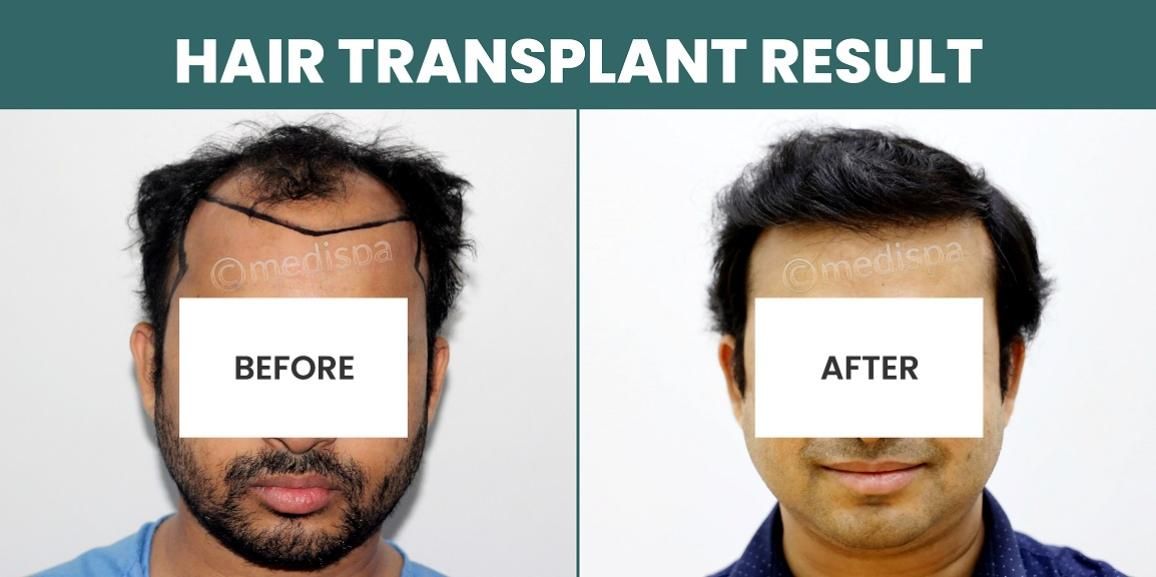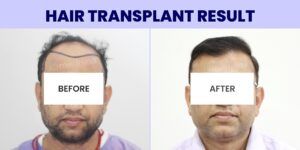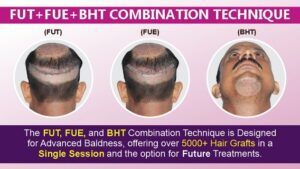
Various factors, including hormonal imbalances, systemic diseases, genetic tendencies toward hair loss, trauma, and scarring, can contribute to hair loss. There exists a risk of experiencing irreversible hair loss, commonly known as pattern baldness or androgenic alopecia.
Hair transplant in India is as common as those in other countries. In recent years, individuals from around the world have been traveling to India for hair transplant procedures. The cost-effectiveness of hair transplant cost in India, combined with the high standard of care, attracts international patients interested in hair transplant tourism.
Medispa hair transplant clinic, situated in Delhi and Jaipur, is recognized as one of the leading centers for hair transplant treatments. We provide a range of services designed to address hair loss. Our specialists evaluate the root causes of your hair loss and suggest the most appropriate personalized treatment options. We maintain facilities that adhere to international standards to guarantee a safe and effective hair transplant experience for all our patients. Dr. Suneet Soni, the founder and CEO of Medispa Clinic, is acknowledged as one of the most proficient hair transplant surgeons in the nation. He is renowned for his exceptional artistic vision and technical skill. His innovative methods and committed research have earned him considerable acclaim in the field of hair transplantation.
Success rate of hair transplant
The efficacy of hair transplant procedures is exceptionally high, establishing it as the most dependable solution for addressing hair loss. Each method of hair transplantation has demonstrated significant success, contingent upon the surgeon’s proficiency in applying the suitable technique tailored to each specific case. The skill and experience of the surgeon, along with their team, are vital factors in determining the outcome of the procedure. With ongoing advancements in technology and methodologies, the success rates are reported to be between 97% and 100%, providing an excellent opportunity for patients to attain favorable results from their hair transplant. Consequently, if you have reservations regarding the success rates, there is no cause for concern. It is advisable to concentrate on selecting a reputable and skilled hair transplant clinic. Make an informed decision by choosing a clinic that emphasizes high-quality standards.
Truth and facts about hair restoration
While you may be familiar with the term “hair transplant,” there are several aspects of the procedure that you might not fully understand. It is advisable to educate yourself on key information regarding the surgery beforehand, enabling you to make a well-informed decision and set realistic expectations, as discussions about hair transplants often include various misconceptions.
- Hair transplantation is a restorative procedure: Despite common beliefs, there are some misconceptions surrounding hair transplantation, which is fundamentally a restorative procedure. Many patients at our clinic mistakenly believe that hair transplantation can regenerate hair follicles that have been lost due to hair loss. This is inaccurate, as no such technique currently exists. During a hair transplant, hair grafts are relocated from a donor site to the balding area, emphasizing its nature as a restorative procedure.
- Permanent outcomes of hair transplantation: You may be curious about how hair transplantation yields permanent results. If the hair follicles remain undamaged throughout the procedure, the outcomes of a hair transplant can indeed be lasting. The effectiveness of a permanent hair transplant largely depends on the selection of the hair grafts utilized during the process. These grafts, often referred to as DHT-resistant hair roots, lack androgen receptors, making them resistant to the effects of hormones that typically cause hair loss. When these hair transplants are placed in the targeted bald areas, they retain the characteristics of healthy roots rather than those of the scalp, preventing hair loss. Consequently, this leads to enduring results, provided that the hair follicles are transplanted with care.
- A hair transplant is a procedure that is performed without pain: This technique is minimally invasive and conducted under local anesthesia. The only moment of discomfort may occur during the injection of the local anesthetic. Therefore, if your concern is about pain, there is no need for apprehension.
- Hair transplantation does not provide immediate results: Most patients understand that this procedure does not lead to swift outcomes. The hair growth process following a hair transplant mirrors that of natural hair, meaning that immediate results are not feasible. Consequently, it typically takes 5 to 6 months post-treatment for significant hair growth to become evident.
How to confirm the success of the hair transplant procedure?
When individuals pursue cosmetic surgery, they invariably seek results that appear natural and a thorough correction of any imperfections. In the context of hair transplant procedures, success is defined by the attainment of maximum hair density alongside a natural look. To ensure the effectiveness of a hair transplant surgery, several critical factors must be considered. These factors are detailed below:
- Emphasize skill: It is essential to prioritize the choice of a proficient hair transplant surgeon to achieve the best possible outcomes. When evaluating potential surgeons, one should take into account their educational background, level of experience, specialized skills, artistic sensibility, and comprehensive knowledge. To gauge a surgeon’s proficiency, reviewing their portfolio of past patients, including galleries, videos, and testimonials, can be informative. Furthermore, it is advantageous to personally hear from former patients, as this decision warrants careful consideration.
- Facilities provided by the clinic:Choosing the right hair transplant clinic is essential and requires careful evaluation of several key factors. These factors encompass the clinic’s overall standards, the presence of state-of-the-art equipment, the quality of the tools and instruments utilized, compliance with hygiene regulations, and the enforcement of safety measures. If you find all these criteria satisfactory, the clinic can be deemed a suitable option. It is imperative to recognize the importance of hygiene and safety protocols, as they are crucial in reducing the likelihood of complications during and after the procedure.
- Surgeon owned clinic or multispecialty brand: It is advisable to select a hair transplant clinic that operates with a single physician. This approach guarantees that the before-and-after images you have reviewed are genuinely representative of the work performed by the surgeon you will be consulting. Furthermore, the hair growth process following transplantation generally takes about a year, and having a single doctor allows for consistent communication and follow-up throughout this duration. In contrast, clinics with multiple specialists may have varying doctors, which can complicate the establishment of a trusting relationship with a new practitioner.
- Price associated with the procedure: When selecting a hair transplant clinic, it is essential to take into account aspects beyond merely the cost of the procedure. Focusing exclusively on price may result in disappointing outcomes and possible regrets later on.
- Engage openly with your hair transplant surgeon: During the consultation, you should feel free to express any concerns you may have to your hair transplant surgeon to promote transparency. Do not refrain from asking questions, as this will not diminish your confidence in the procedure or the surgeon.





